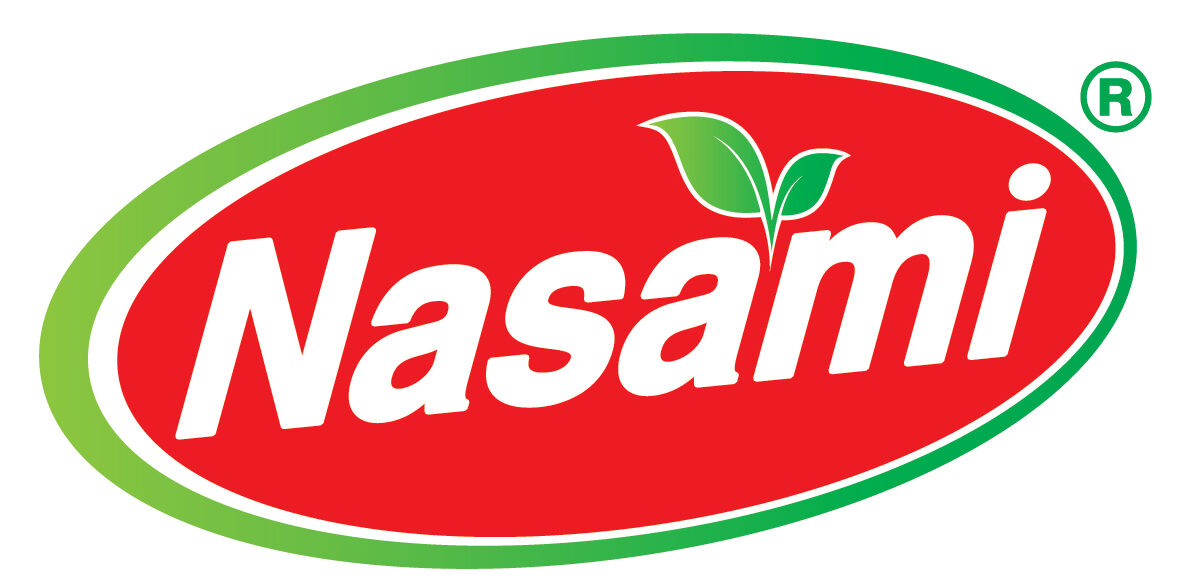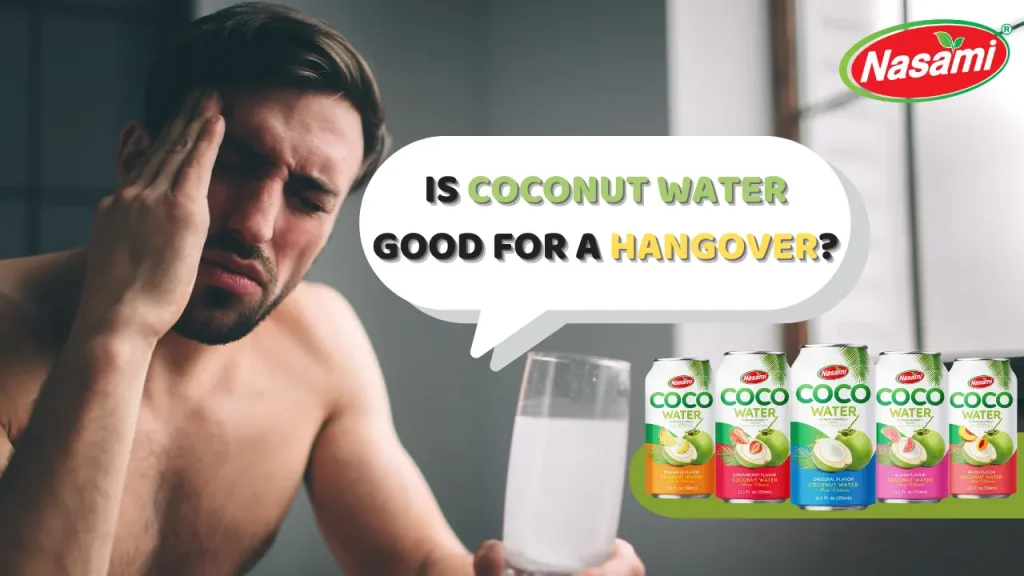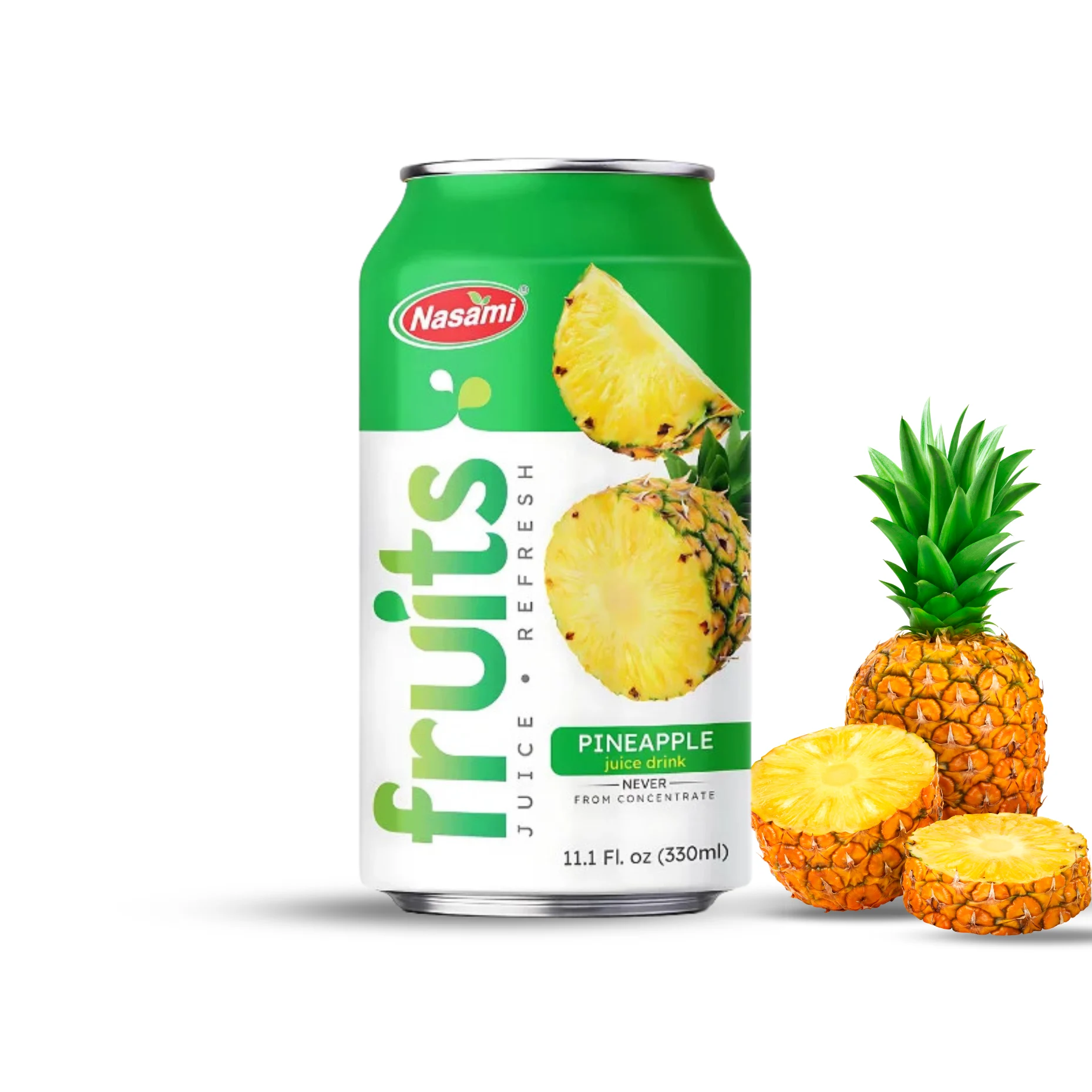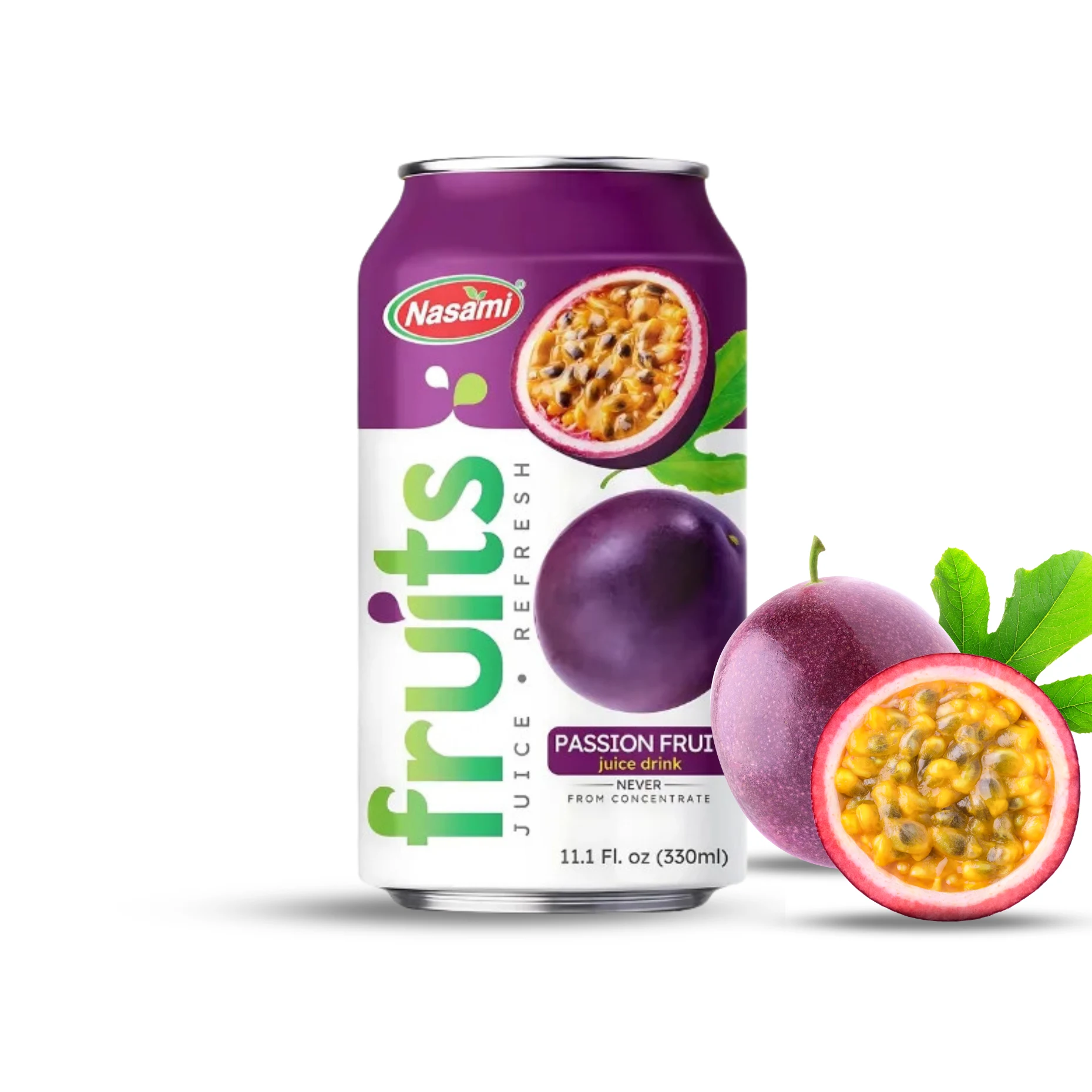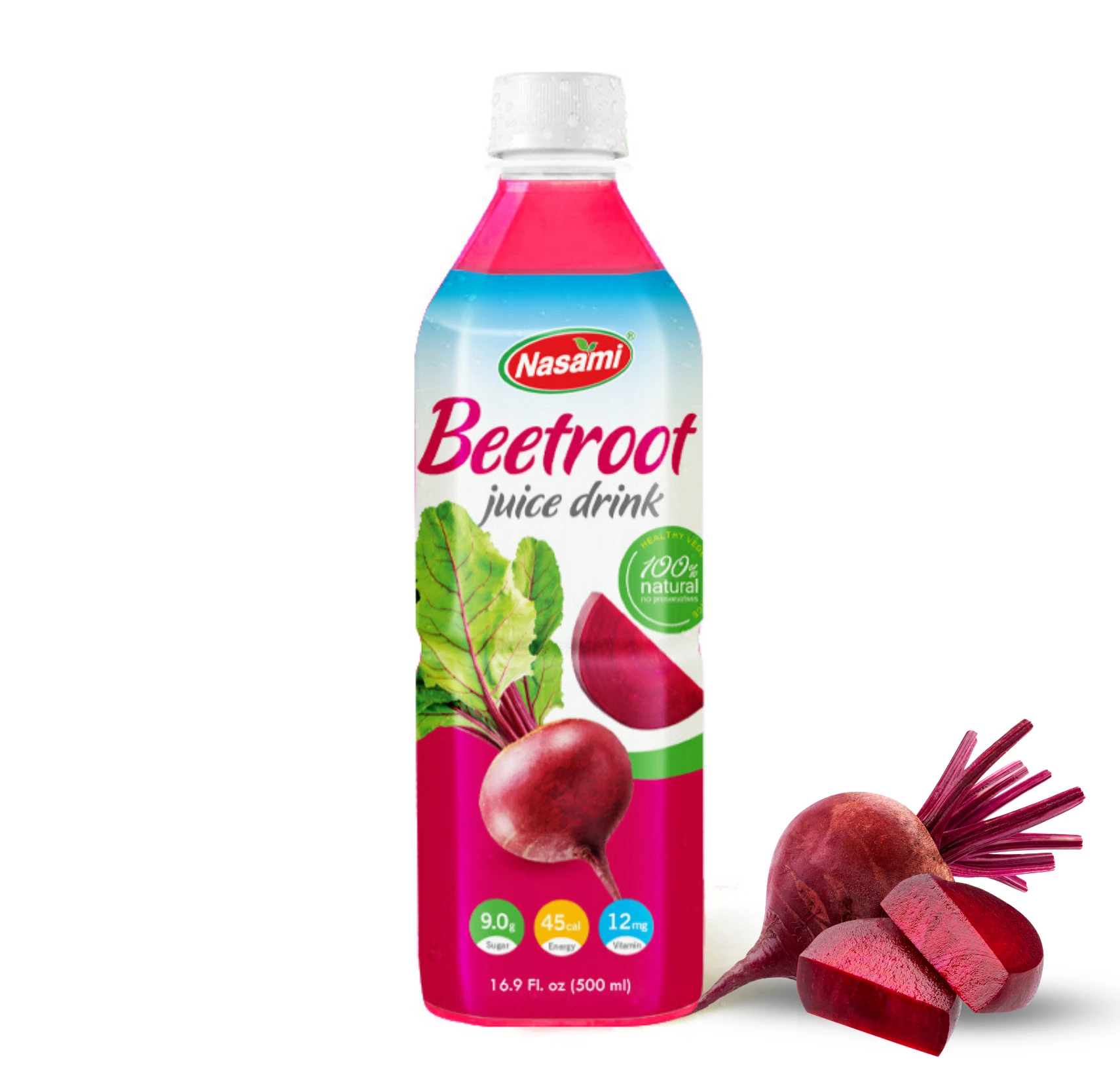Is coconut water good for a hangover? A hangover is a set of unpleasant symptoms that occur after consuming excessive alcohol, such as headache, nausea, fatigue, dehydration, and sensitivity to light and sound. These effects stem from alcohol’s impact on hydration, electrolyte balance, and liver function. Understanding these symptoms can help identify effective remedies for recovery.
Table of Content
ToggleCoconut water, known for its refreshing taste and health benefits, is rich in electrolytes, vitamins, and minerals. Often marketed as a healthier alternative to sugary sports drinks, it’s an appealing choice for rehydration after drinking.
Due to its hydrating properties and rich electrolyte content, coconut water may help alleviate hangover symptoms. This article explores how it can aid in rehydration, restore electrolyte balance, and provide essential nutrients to support recovery.
Is coconut water good for a hangover?
Hangovers are a common consequence of excessive alcohol consumption, and understanding their causes can help in finding effective remedies.
A. Causes of Hangovers
- Dehydration: Alcohol is a diuretic, which means it increases urine production and can lead to significant fluid loss. This dehydration is one of the primary contributors to hangover symptoms, leaving the body in need of rehydration.
- Electrolyte Imbalance: Alongside fluid loss, alcohol consumption can disrupt the balance of electrolytes—minerals like sodium, potassium, and magnesium that are crucial for various bodily functions. This imbalance can exacerbate symptoms such as headaches and fatigue.
- Congeners in Alcoholic Beverages: Congeners are by-products of fermentation found in alcoholic drinks, particularly in darker liquors like whiskey and red wine. These compounds can contribute to the severity of hangovers, with some studies suggesting that drinks with higher levels of congeners are more likely to induce unpleasant aftereffects.
B. Common Symptoms of Hangovers
- Headache: One of the most notorious hangover symptoms, headaches can be triggered by dehydration, increased blood vessel dilation, and the effects of congeners.
- Fatigue: Alcohol disrupts sleep patterns, leading to poor-quality sleep. As a result, fatigue is common when waking up after a night of drinking.
- Nausea: The combination of dehydration, stomach irritation, and the effects of alcohol on the digestive system can result in nausea, making it difficult to eat or drink.
- Dizziness: Dizziness can occur due to dehydration and the effects of alcohol on the central nervous system, often making it challenging to feel stable or alert.

Nutritional Profile of Coconut Water
Coconut water is often praised for its health benefits, particularly in the context of hydration and electrolyte replenishment. Let’s take a closer look at its nutritional profile and how it may be beneficial for alleviating hangover symptoms.
A. Hydration Properties
- Water Content: Coconut water is composed of approximately 94% water, making it an excellent choice for rehydration. After a night of drinking, when the body is dehydrated, consuming coconut water can help restore fluid levels more effectively than many other beverages.
- Comparison with Other Beverages: Unlike sugary soft drinks or caffeinated beverages, which can exacerbate dehydration, coconut water provides a natural hydration option. Its light flavor and refreshing taste make it easier to consume in larger quantities, aiding in quicker recovery from dehydration.
B. Electrolyte Content
- Potassium: One of the standout features of coconut water is its high potassium content, containing about 600 mg per cup. Potassium is vital for maintaining fluid balance in the body and helps alleviate muscle cramps, a common issue during hangovers.
- Sodium: Coconut water also contains sodium, though in lower amounts compared to sports drinks. Sodium is essential for maintaining hydration and electrolyte balance, making coconut water a good option for rehydration.
- Magnesium: This beverage also provides magnesium, which plays a role in muscle function and energy production. Consuming magnesium can help reduce feelings of fatigue and improve overall recovery after a hangover.
C. Low Calorie and Natural Sugar Content
Coconut water is low in calories, with about 45 per cup, making it a guilt-free hydration choice. It contains natural sugars that provide a quick energy boost without the crash of artificial sweeteners. This makes coconut water an appealing option for replenishing energy and recovery. Is Coconut Water Good For A Hangover? Yes, its hydration and electrolyte content help restore balance and ease hangover symptoms.
How Coconut Water Helps with Hangovers
Coconut water is not just a trendy beverage; it has several properties that can help alleviate the unpleasant symptoms of a hangover. Let’s explore how it can assist in the recovery process.

A. Rehydration Benefits
- Restoring Lost Fluids: After a night of drinking, the body often faces significant dehydration due to the diuretic effects of alcohol. Coconut water, with its high water content (approximately 94%), is an effective way to replenish the fluids lost during a night of drinking. Consuming coconut water helps restore hydration levels, which is crucial for recovery.
- Importance of Hydration Post-Drinking: Proper hydration is essential for alleviating many hangover symptoms, including headaches and fatigue. By drinking coconut water, individuals can help their bodies recover more quickly, enabling them to feel more refreshed and functional throughout the day.
B. Electrolyte Replenishment
- Balancing Electrolytes: Coconut water is rich in essential electrolytes like potassium, sodium, and magnesium. These minerals are vital for maintaining fluid balance and proper muscle function. After alcohol consumption, replenishing electrolytes is important for restoring normal body functions.
- Reducing Muscle Cramps and Fatigue: The electrolyte content in coconut water can help prevent and relieve muscle cramps, which are often exacerbated by dehydration and electrolyte imbalance. Furthermore, replenishing these minerals can combat feelings of fatigue, making it easier to recover from a hangover.
C. Natural Sugars for Energy
- Quick Energy Boost: Coconut water contains natural sugars, which provide a quick source of energy. This can be particularly beneficial after a night of drinking when blood sugar levels may be low. Consuming coconut water can help revitalize energy levels without the crash associated with processed sugary drinks.
- Stabilizing Blood Sugar Levels: The natural sugars in coconut water help stabilize blood sugar levels, preventing the spikes and crashes that can accompany other high-sugar beverages. This stabilization can aid in reducing feelings of dizziness and lethargy often experienced during a hangover.
Get information about all products of Nasami Beverages.
Scientific Evidence and Studies
While anecdotal evidence supports the use of coconut water as a remedy for hangovers, scientific research provides a more concrete foundation for its benefits. Let’s explore the studies and findings related to coconut water and its effects on hydration and electrolyte balance.
A. Research on Coconut Water and Hydration
Several studies have examined the hydration properties of coconut water. Research in the Journal of Physiological Anthropology found that coconut water can rehydrate the body after exercise, even more effectively than traditional sports drinks. This suggests that coconut water’s high water content and electrolytes may also help with rehydration after alcohol consumption. Is Coconut Water Good For A Hangover? The answer is yes—its electrolytes can aid in restoring hydration after a night of drinking.
B. Studies Linking Electrolyte Balance and Hangover Relief
Electrolyte imbalance plays a key role in hangover symptoms. A study in the American Journal of Clinical Nutrition emphasizes the importance of maintaining electrolyte levels, especially after fluid loss from diuretics like alcohol. While direct research on coconut water for hangover relief is limited, its rich electrolyte profile—particularly potassium and sodium—suggests that Is Coconut Water Good For A Hangover? It could help restore balance and reduce symptoms.

C. Limitations of Current Research
Despite promising findings, current research on coconut water and hangovers has limitations. Most studies focus on hydration and electrolyte balance in exercise, not alcohol consumption. More controlled clinical trials are needed to establish clear links between coconut water and hangover relief. Personal experiences vary, so while coconut water may help some recover, it may not be a universal solution. Is Coconut Water Good For A Hangover? The answer depends on individual experiences and the need for more research.
Other Natural Remedies for Hangovers
While coconut water is a popular choice for alleviating hangover symptoms, there are several other natural remedies worth considering. Here, we’ll compare coconut water with other drinks, discuss foods that can help, and explore lifestyle tips for recovery.
A. Comparison with Other Drinks
- Sports Drinks: Sports drinks are designed to replenish electrolytes and fluids lost during exercise, making them a common choice for hydration. However, they often contain added sugars and artificial ingredients, which can be counterproductive after drinking alcohol. In contrast, coconut water provides natural electrolytes without excess sugar, making it a healthier alternative for rehydration.
- Plain Water: While plain water is essential for rehydration, it lacks the electrolytes that help balance the body’s fluids after a hangover. Coconut water not only hydrates but also replenishes important minerals, making it more effective in addressing hangover symptoms compared to water alone.
B. Foods That May Help Alleviate Symptoms
Certain foods can complement coconut water in the recovery process:
- Bananas: Rich in potassium, bananas can help replenish lost electrolytes and reduce muscle cramps.
- Eggs: Eggs contain cysteine, an amino acid that may help break down acetaldehyde, a toxic by-product of alcohol metabolism.
- Ginger: Ginger has natural anti-nausea properties and can help soothe an upset stomach.
- Toast or Crackers: Simple carbohydrates can stabilize blood sugar levels and provide a gentle source of energy when nausea is present.
C. Lifestyle Tips for Recovery
In addition to dietary remedies, certain lifestyle practices can enhance recovery from hangovers:
- Rest and Sleep: Allowing the body to rest is crucial for recovery. Sleep helps restore energy levels and aids in the healing process.
- Stay Hydrated: Alongside coconut water, continue to drink plenty of fluids throughout the day to keep hydration levels up.
- Light Exercise: If feeling up to it, gentle exercise can boost endorphins and improve mood, aiding in the recovery process.
- Avoid Further Alcohol: While the idea of a “hair of the dog” may be tempting, consuming more alcohol can prolong hangover symptoms and delay recovery.

Coconut water is a natural remedy for hangovers due to its impressive nutritional profile. Its high water content makes it perfect for rehydration, restoring lost fluids after a night of drinking. The rich electrolytes, especially potassium, sodium, and magnesium, help rebalance the body and alleviate hangover symptoms like headaches and fatigue. The natural sugars in coconut water provide a quick energy boost, supporting recovery without the crash of sugary drinks.
Incorporating coconut water into your hangover recovery strategy can be a smart choice. Is Coconut Water Good For A Hangover? It not only hydrates but also replenishes essential nutrients the body craves after alcohol consumption. For optimal recovery, pair it with other restorative foods like bananas and eggs, and adopt healthy habits like adequate rest.
While coconut water helps with hangover symptoms, remember that the best way to avoid a hangover is to drink responsibly. Moderation is key to enjoying alcohol while minimizing negative effects. Stay hydrated, enjoy responsibly, and take care of your body!
